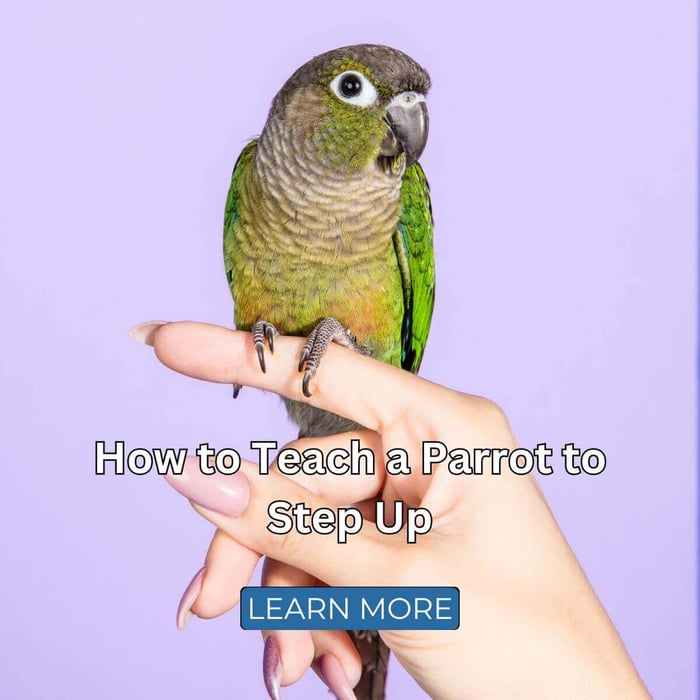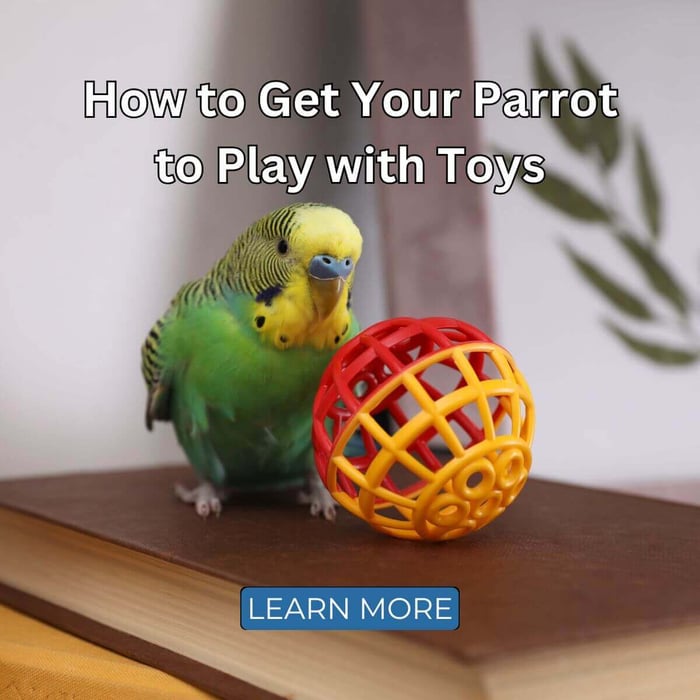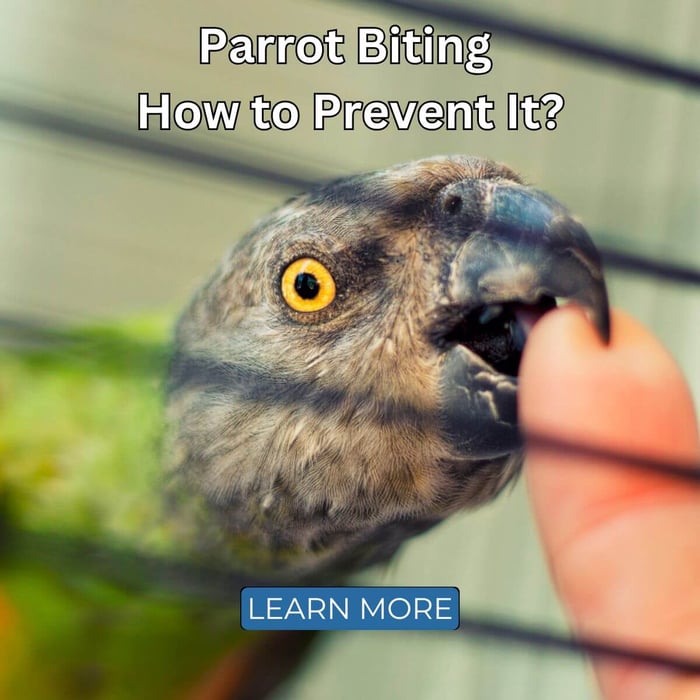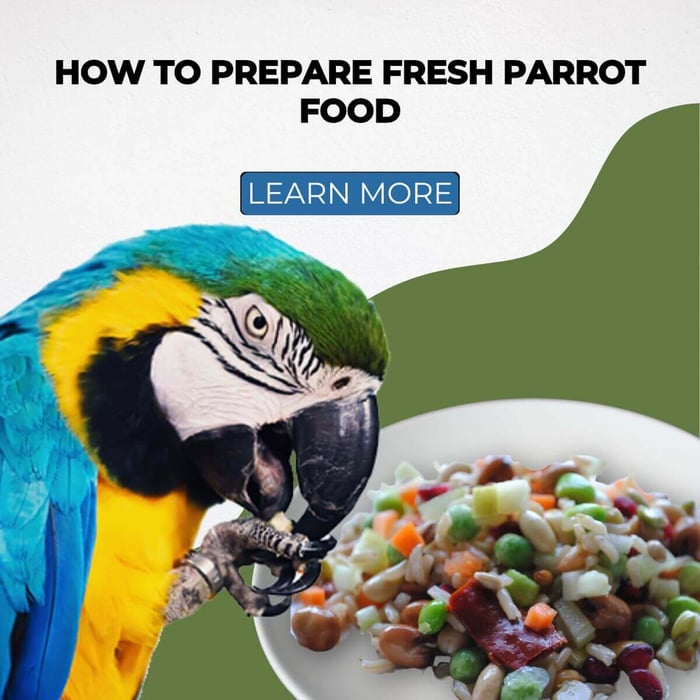How Many Parrot Treats and Nuts Shall I Give to my Bird Per Day?
Let me start by saying this: There is no simple or straightforward answer to this question. The number of parrot treats you give to your parrot should depend on their size, diet, and physical activity during the day. However, understanding the factors at play can help you make the best choices for your feathered friend.
The Wild Parrot Comparison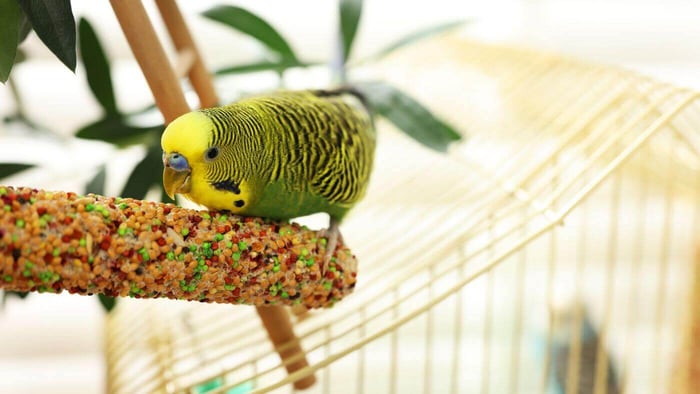
To better understand how many treats to offer your parrot, it's helpful to look at their wild counterparts. In nature, wild parrots will fly miles each day to find their food, and they must work hard to forage for it. This means they consume a diet that's not only diverse but also earned through effort.
In contrast, captive parrots get their food delivered by their human companions. For most parrots, this food comes in the form of a food bowl, which means no effort is required. In many cases, captive parrots are provided with more food than they would find in the wild. They may not need to work for it or spend as much energy searching and foraging. As a result, they typically require less food than their wild cousins. This concept can and should be applied to parrot treats as well.
How Much is Too Much?
In terms of treatment frequency, it's important to keep a balance. Many parrot owners unknowingly overfeed their pets with high-fat treats or over-supplement their diet, leading to weight gain and health issues. It's easy to see why this might happen - we all love to spoil our pets with treats, and they're often so eager to receive them. But remember that in captivity, we provide the majority of their food, so they don't require the same quantity of extras that wild birds do.
Most avian vets and bird care experts, including those I've spoken to personally, agree that the less fatty the diet, the better it is for parrots. Excess fat in a parrot's diet can lead to obesity, liver disease, and other health problems. Therefore, treats should be given in moderation, and you should aim for healthy, low-fat options whenever possible.
A Healthy Parrot Diet
The foundation of a parrot's diet should be varied and nutritionally balanced. Seeds or pellets, fresh fruits, and vegetables should make up the bulk of their daily intake. Variety is the key to ensuring that your parrot gets all the nutrients they need. Fresh foods should be included daily, and it's a good idea to rotate different vegetables and fruits to maintain a well-rounded diet.
At Parrot Essentials, we prioritise healthy treats that complement your parrot's regular diet. For training purposes, we recommend using nuts like almonds, cedar nuts, monkey nuts, and walnuts. These are nutritious options but should be given sparingly because they are high in fat. For day-to-day treats, I prefer using healthy alternatives such as fresh foods, vegetables, Lafeber Nutriberies, Harrison's Power Treats, dried fruits, palm nuts, and sprouted seeds. These treats are all excellent choices for encouraging good behaviour and rewarding your parrot without overloading their system with excess fat or sugar.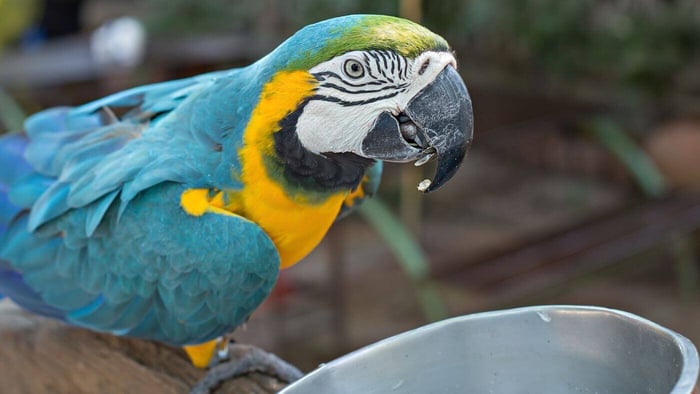
How Much to Give?
Now that we've covered what makes up a good parrot treat let's focus on how many treats you should offer your parrot.
For example, when training my African Grey, Bobby, I typically use one almond throughout the entire training session. A training session could last anywhere from 10 to 30 minutes, depending on Bobby's focus and engagement. Rather than giving her several nuts, I break the almond into small pieces to make it last the entire session. The idea is to keep the treat small but still rewarding, which encourages positive behaviour and learning.
Alternatively, during a different training session, I might use Harrison's Power Treats, which are designed specifically for parrots. In this case, I would use 3 to 5 pellets for the entire training session. This number of treats provides just enough reward without overindulging, and it also helps to maintain the balance in Bobby's daily nutrition.
The Variety of Parrot Treats
The great thing about parrot treats is that the variety is endless. There are so many healthy options available to choose from, and finding what your parrot enjoys is part of the fun. In my experience, parrots enjoy a range of treats, and it's important to rotate them to keep things interesting. Whether it's fresh fruit like apple slices, a few dried fruits, or a special treat like palm nuts, your parrot will appreciate the variety.
It's crucial to note that variety not only keeps your parrot entertained but also ensures they get a wide range of nutrients from their treats. A varied diet is beneficial for their health, so don't hesitate to experiment with different healthy treats. However, always make sure that the treats you give are low in fat, sugar, and salt, as these ingredients can cause harm to your bird over time.
Treats and Their Role in Training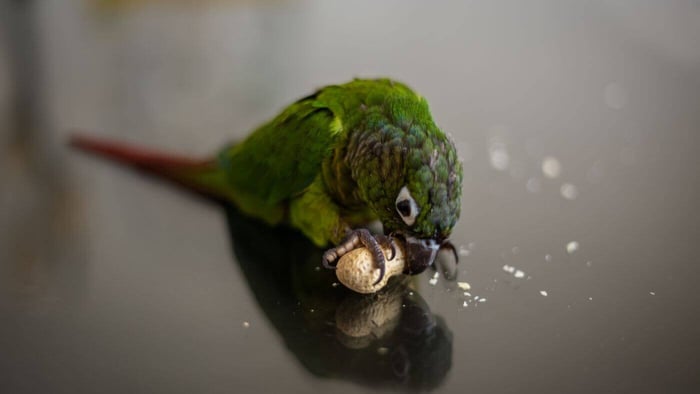
Treats play a key role in training your parrot. Using them as a reward helps reinforce positive behaviours, like stepping up onto your hand or using a toy correctly. However, the amount of treats you offer during training should be small enough not to disrupt their daily nutrition but significant enough to be an effective reward. Training sessions should be kept short, with just a few small treats to keep the parrot engaged without overfeeding them.
If your parrot enjoys certain types of treats more than others, be sure to use these as occasional rewards rather than daily treats. This ensures that your parrot will stay motivated and excited for training, and they won't get accustomed to receiving these special treats too often. Over time, your parrot will start to associate positive behaviour with receiving a reward, reinforcing the training process.
Treats as a Supplement, Not a Staple
Ultimately, parrot treats should be considered a supplement to your parrot's main diet. While they provide additional nutrients and motivation for training, they should never replace the core of your bird's diet. A healthy mix of pellets or seeds, fresh fruits, and vegetables is essential for their overall well-being.
Giving your parrot too many treats can lead to obesity, malnutrition, or other health complications. The general guideline is that treats should make up no more than 10-15% of your bird's overall diet. This means that the majority of what your parrot eats should come from their regular, nutritionally balanced food.
Final Thoughts on Parrot Treats
To sum up, the number of parrot treats you give depends on a variety of factors, including the size of your parrot, their activity level, and their overall diet. A healthy, balanced diet should be the focus, with treats used sparingly as a supplement for training or occasional rewards. Keep in mind that variety is key, and always aim for healthier, low-fat treats to maintain your parrot's health.
At Parrot Essentials, we offer a wide range of healthy parrot treats and training tools, from fresh foods and dried fruits to pellets and nut-based options. Whether you're rewarding your parrot for good behaviour or simply treating them to something special, you'll find something that works for your bird's dietary needs. Remember, less is more when it comes to treats, and moderation is the key to keeping your parrot happy and healthy.
FAQs
What is a healthy treat option for my parrot?
Healthy treat options include low-fat, low-sugar foods like fresh vegetables and fruits and specially formulated parrot treats like Harrison’s Power Treats or Lafeber Nutri-Berries. It’s important to choose treats that complement your parrot’s regular diet without adding unnecessary fats or sugars.
How often can I give treats to my parrot?
Treats should be given in moderation and not exceed 10-15% of your parrot’s overall diet. The frequency can depend on their daily activities and the purpose of the treats, such as training or occasional rewards.
Can treats be used during parrot training sessions?
Yes, treats are an effective tool for training sessions as they help reinforce positive behaviours. Use small, manageable portions of treats to maintain your parrot’s interest and focus during training without overfeeding.
What should I avoid in parrot treats?
Avoid treats high in fat, sugar, and salt, as they can lead to health issues such as obesity and liver disease. It’s crucial to read the labels and choose treats that are specifically formulated for parrots.
How do I balance my parrot’s diet with treats?
Ensure that the main diet of pellets or seeds, fresh fruits, and vegetables comprises the majority of your parrot’s intake. Treats should only supplement this diet, not replace it. Rotate different types of treats to provide variety and keep your parrot’s diet interesting and nutritious.

